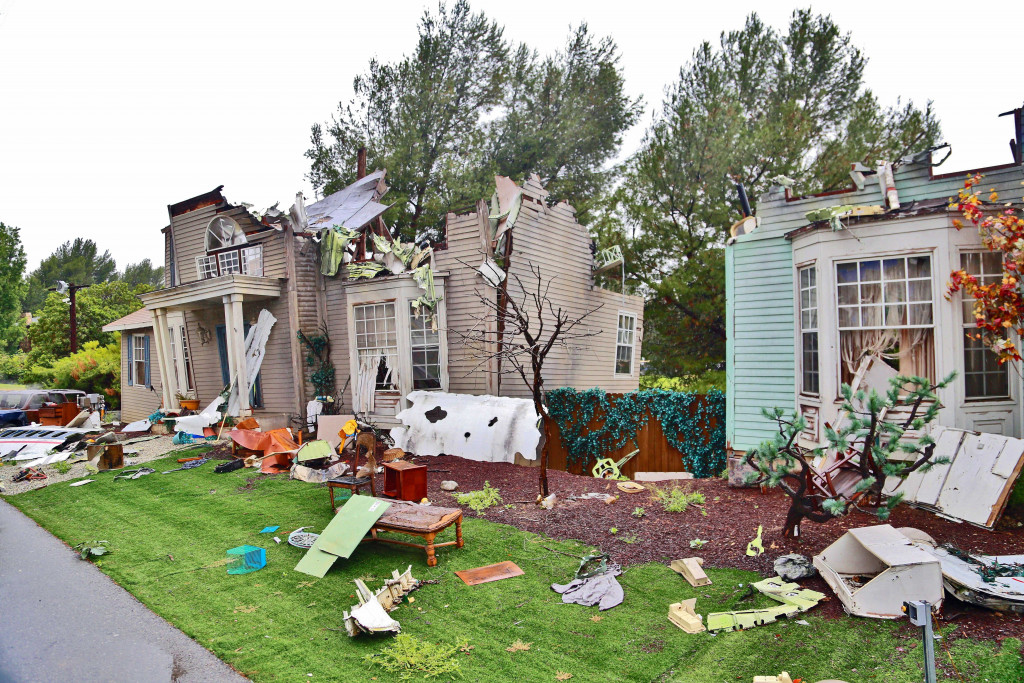- Take care of yourself and your family first before tackling anything else.
- Gather evidence of the damage to help with insurance claims or other legal matters.
- Store important documents in an easily accessible location.
- Work with professionals to repair your home and secure the property.
- Take necessary precautions to protect your home.
The United States saw 18 weather-related disasters that cost more than $1 billion each in 2022. The events included a drought event, a flooding event, 11 severe storms, three tropical cyclones, one wildfire, and one winter storm. These violent occurrences killed 474 people and caused enormous economic damage to the affected areas. Between 1980 and 2022, there were 7.9 such incidents annually (corrected for inflation); from 2018 to 2022, this number rose dramatically to 17.8.
A major home disaster, whether a tornado, hurricane, flood, or fire, can be overwhelming. Not only is your home damaged (or even destroyed), but you may face daunting questions of how you can pay for the damage. Knowing how to handle the aftermath of a major disaster can help make getting your life back on track easier. Here are some tips that can help you get started.

Take Care of Yourself First
It’s important to remember that taking care of yourself should always be your top priority if you’ve been affected by a major home disaster. Focusing on the tasks at hand will be easy if you take care of your needs first.
Stay Healthy
Make sure you’re eating well and staying hydrated, get plenty of rest when possible, and reach out for emotional support if needed. Taking proper care of yourself will help ensure you have the energy and resilience to tackle the challenges ahead.
Medical Attention
You should also get medical attention if you have been injured, as untreated injuries can impact your well-being long-term. If mental health issues arise, don’t be afraid to seek professional help immediately. It’s more than ok to ask for help when dealing with such a major event, and many resources are available.
Taking care of yourself first will help you start the recovery process on the right foot and give you the strength and clarity of thought needed to make difficult decisions.
Document Everything
When dealing with insurance companies or any other organization related to your disaster recovery efforts, having photos and videos documenting what happened—before, during, and after—is invaluable. Take pictures of any visible damage as soon as possible to be used as evidence later in the process.
Store Important Documents
Keep all relevant documents, such as insurance policies, in an easily accessible location, ready when needed. Documenting everything will also make it much easier when filing for assistance or seeking legal advice. Doing this will ensure you have the best chance of receiving the help and compensation necessary to get back on your feet.
Work with Professionals
It would help to work with professionals once you have the necessary finances to repair your home. This will help ensure your home is safe and sound as quickly as possible. Don’t be afraid to shop around for the best deals but always work with someone licensed and experienced in this type of work.
For instance, you can hire qualified restoration professionals from reputable companies, such as Professional Restoration. These companies have the experience and equipment to ensure your home returns to its original state before the disaster.
Secure Your Home
Once basic safety needs have been taken care of, securing your home should be your next priority. This is especially true if extreme weather is still present in the area or if there is potential for looters or other criminals to take advantage of the situation.

Protect the Home
Depending on the damage and where you live, this could involve boarding up windows or doors with plywood boards. You can also have tree branches removed if they pose any danger to passersby or future repairs/renovations within proximity to your property lines.
You can also ensure any outdoor items that could be used as weapons are stored indoors. You should ensure they are out of reach to anyone you don’t want to have access to them. Additionally, a security system should be installed or at least monitored 24/7, including cameras, sensors, or alarms.
Ensure you also secure your valuables in a safe place, such as a fireproof safe or another secure area away from the elements and potential looters. Finally, be sure to check with your local police department for any further security measures that may need to be taken to protect your home and property.
Recovering from a major home disaster can seem daunting at first—but with proper preparation and resources in place beforehand, it doesn’t have to be! Homeowners can reduce their chances of feeling overwhelmed by following these tips for dealing with extreme weather events or other disasters that affect homes. It also ensures their safety and well-being moving forward. After all, no one ever expects a natural disaster to hit their home—but being prepared makes all the difference!




